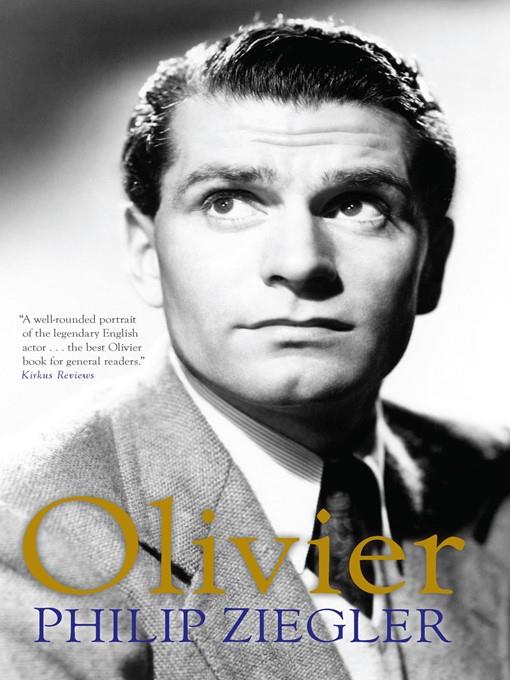
Olivier
کتاب های مرتبط
- اطلاعات
- نقد و بررسی
- دیدگاه کاربران
نقد و بررسی

April 1, 2014
Veteran biographer Ziegler (Edward Heath, 2010, etc.) offers a well-rounded portrait of the legendary English actor. Laurence Olivier's life (1907-1989) has been the subject of innumerable biographies, ranging from innocuous (Anthony Holden, 1988) to scandalous (Donald Spoto, 1992)--not to mention his own weirdly frank yet ultimately unrevealing Confessions of an Actor (1982). Ziegler's version contains nothing particularly new on Olivier's earlier years: the rivalry with John Gielgud in Romeo and Juliet, the partnership with Ralph Richardson at the Old Vic (home to Olivier's greatest performance, in Richard III); his pioneering efforts as a popularizer of Shakespeare on film, most notably with Henry V; and the tragic marriage to Vivien Leigh, doomed by the basic incompatibility of their talents. Ziegler does convey a vivid sense of what made Olivier the most famous stage actor of the 20th century: He simply worked harder than anyone else and invested his roles with a physical bravura that made him thrilling to watch. The biography is notable for a substantive account of Olivier's tenure as director of England's National Theatre, during which he helped establish a fledgling organization with his charm and charisma while also displaying the well-known competitiveness that kept such acting peers as Gielgud and Richardson off the National's roster. Nonetheless, as Ziegler notes, the National owed its existence to Olivier's "passionate exuberance [and] dynamic energy"; he deserved better than the poorly managed transition to Peter Hall's leadership in 1973. Olivier's final years were marked by a series of debilitating illnesses that left him unable to work onstage, a painful fate for an actor who regarded film and TV as second choices. His formerly happy third marriage to Joan Plowright suffered in this period as well; once he could no longer act, he was a querulous old man waiting to die. Despite a lack of revelations, this is probably the best Olivier book for general readers.
COPYRIGHT(2014) Kirkus Reviews, ALL RIGHTS RESERVED.

June 1, 2014
Sir Laurence Olivier is routinely ranked as one of the 20th century's greatest stage and screen actors, capable of playing kings or shabby has-beens. The actor's life (1907-89) and career has been the subject of several major biographies, including his own autobiography, Confessions of an Actor (1982). This book presents Olivier as a study in contrasts, supportive and generous in advancing England's national theater, yet also capable of jealousy toward perceived rivals. Both charming and ambitious, he could be remarkably self-centered, an indifferent father, and something of a "blank page," even to those who knew him best. Basically, the man only came truly alive when considering his next acting or directing challenge. The book covers his legendary, tempestuous marriage to actress Vivien Leigh, unforgettable moments on the stage, his initial disdain for screen acting and television, his lengthy battles with multiple health problems, and his sad, slow decline, when his energy would only permit small roles in lucrative but unworthy films. Although some interviewed here claim that Olivier showed a lack of humanity, there is something very human, moving, and even heroic about his dedication to his craft and his tenacious fight to hold onto life. VERDICT Though not exhaustive (too many acting jobs and personalities are not included), this book is a recommended retelling of a great actor's life.--Stephen Rees, formerly with Levittown Lib., PA
Copyright 2014 Library Journal, LLC Used with permission.

























دیدگاه کاربران